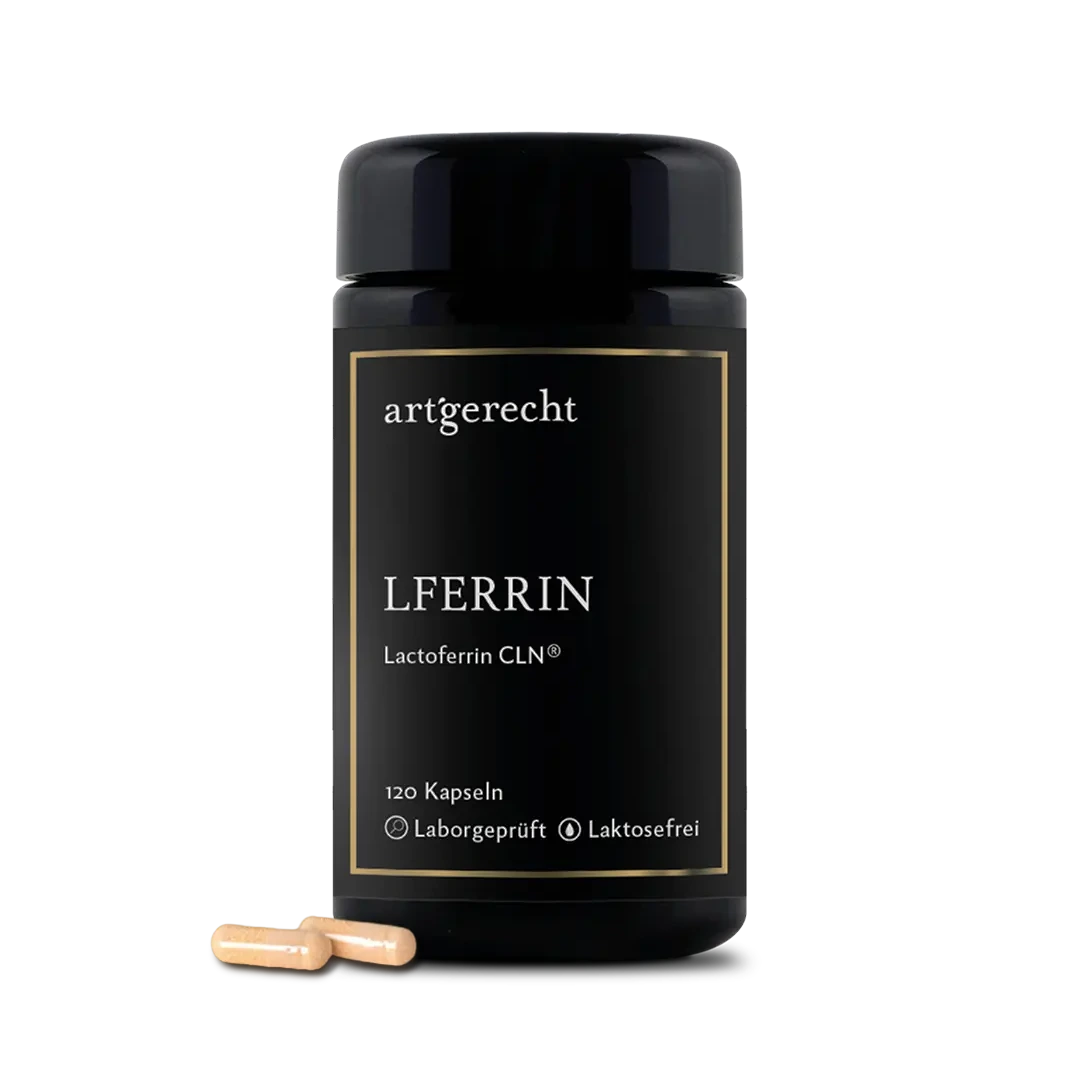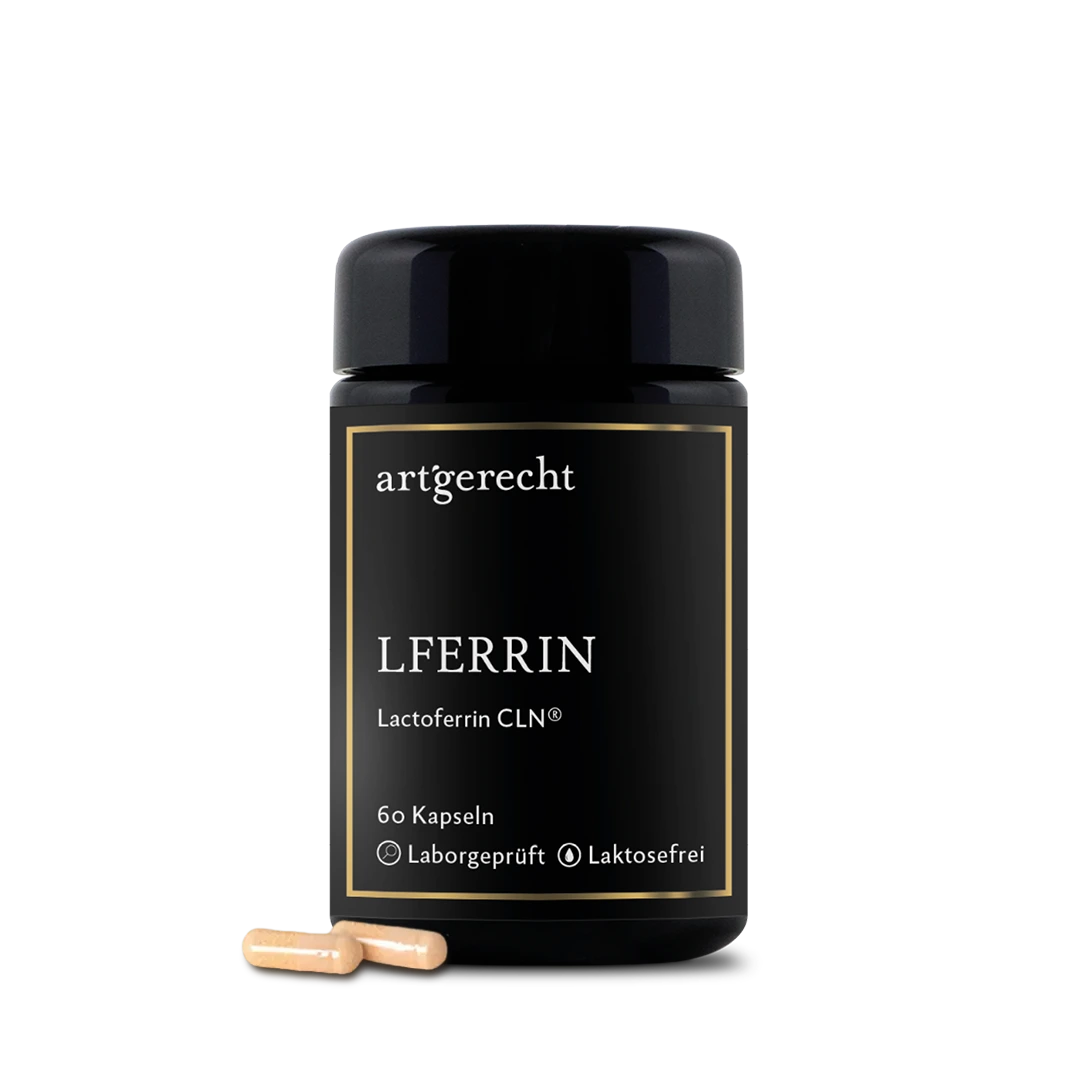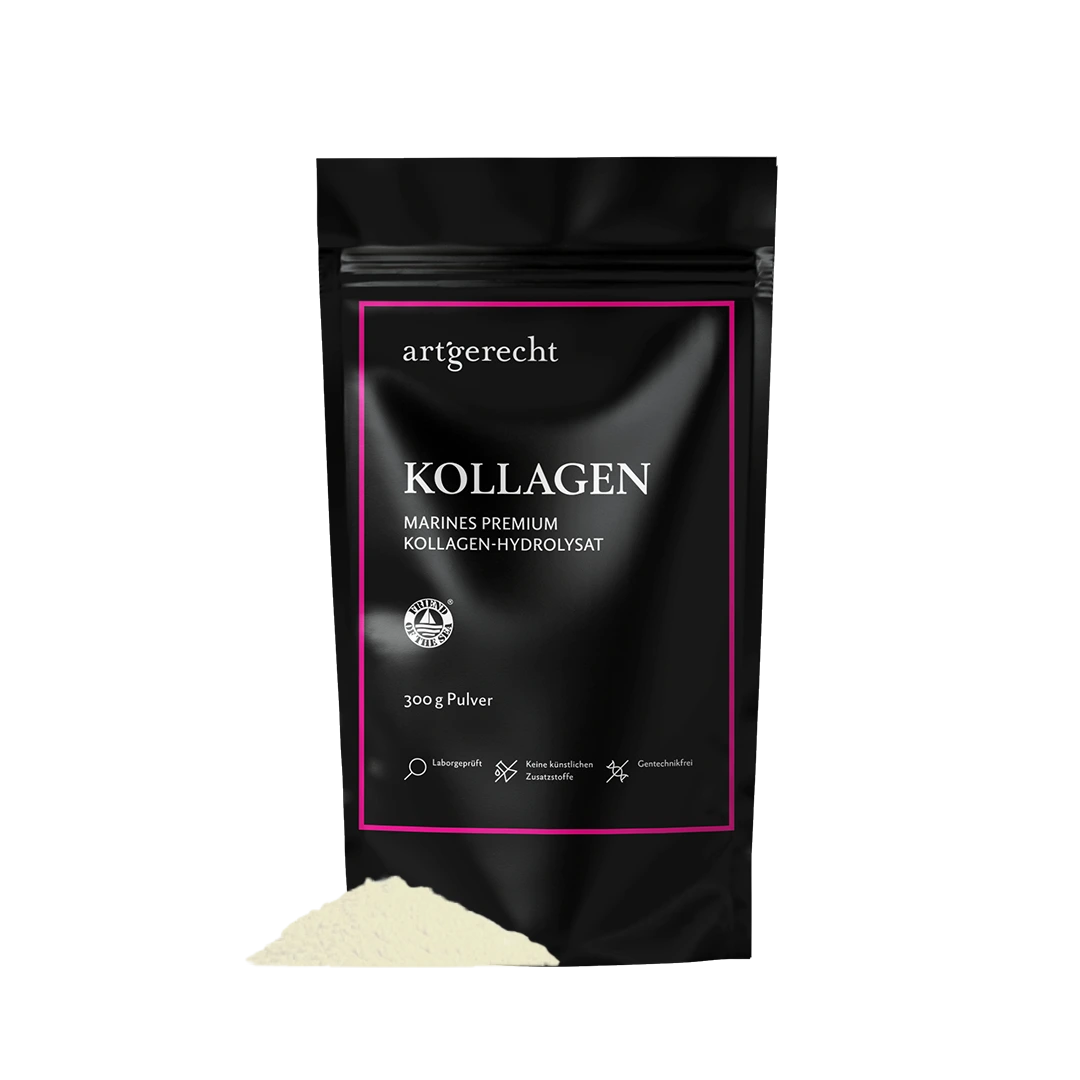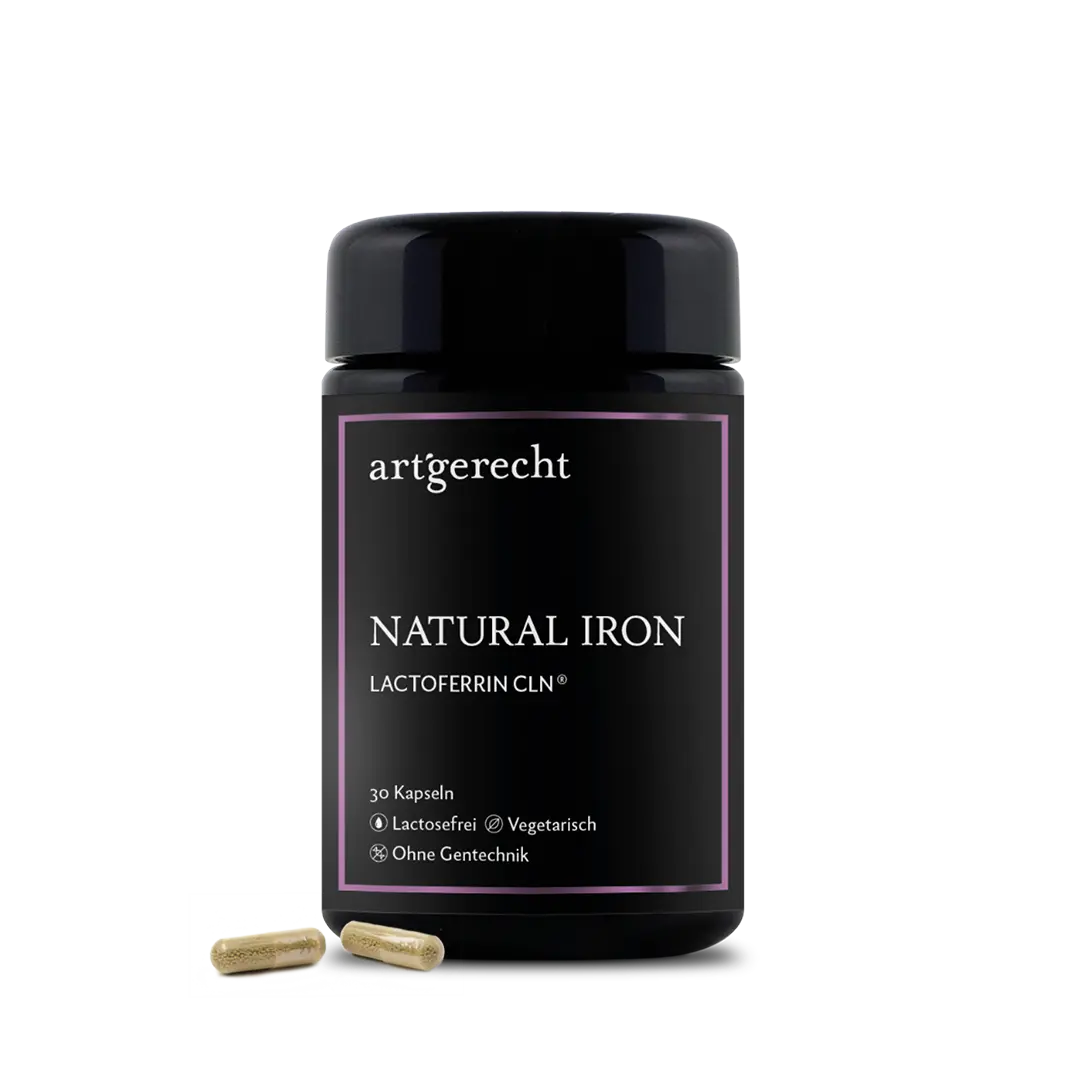A recent publication [1] discusses the neuroprotective role of lactoferrin during early brain development and brain damage over the entire lifespan.
Recent research suggests that early neuroprotective pathways modulated by lactoferrin may prevent neurodegeneration through anti-inflammatory and immunomodulatory processes.
Thus, lactoferrin may have the potential to support brain development and cognition through nutrition and prevent the development of neuropsychiatric disorders in later life [1].
Neuroprotective role of lactoferrin
Maternal infections and placental insufficiency, which can lead to fetal growth retardation and sepsis, as well as necrotic enterocolitis, are frequently observed in premature infants;necrotic enterocolitis are frequently observed in premature births and contribute to the inflammatory challenges that fetuses face and are also risk factors for premature birth. This can lead to damage to the central nervous system and poor neurological developmental outcomes. In addition, premature babies are generally more susceptible to brain damage due to the imbalance between the production and scavenging of oxidative species, as their antioxidant system is not yet fully developed.
Due to its anti-inflammatory, immunomodulatory, iron-binding and antioxidant properties, lactoferrin may be an excellent candidate to support neuroprotection [1].
In an open cohort and subcohort study of pregnant women with risk factors for premature birth, such as iron deficiency anemia, infection or sterile inflammatory response, that oral administration of lactoferrin led to an improvement in iron and inflammatory stasis. In the sub-cohort, the women were additionally treated with intravaginal administration of lactoferrin. In addition to the improvement in the hämatological parameters, reduced inflammatory parameters (interleukin 6) were also found in the serum and in the cervicovaginal fluid. Furthermore, after lactoferrin administration, a further shortening of the cervix was blocked, thus prolonging the duration of pregnancy [2].
In addition, there is preclinical evidence that the administration of lactoferrin during pregnancy can also modulate the consequences of inflammation on the brain development of the foetus and thus have a neuroprotective effect against early brain damage [1].
Promoting role of lactoferrin on brain development and cognitionThe first two years of a child's life are crucial for brain development, as the brain reaches 80% of its adult weight during this period
In addition to a neuroprotective effect of lactoferrin, studies have also shown positive effects on brain development and cognition in infants and children [3].
Lactoferrin is a sialic acid-rich and iron-binding glycoprotein. Sialic acid (Sia) is a key monosaccharide for the synthesis of gangliosides for the brain. It therefore plays a crucial role in brain development.
Iron is an essential nutrient that plays a structural and functional role in improving cognitive and motor development.One of the neuroprotective mechanisms of action of lactoferrin is the increase in brain-derived neurotrophic factor (BDNF), which has been demonstrated in animal model studies. BDNF has several important functional roles in neuronal transmission and plasticity. It is involved in the formation of memory and learning, the survival of neurons and the promotion of growth and differentiation of new neurons and synapses. It is possible that the lactoferrin-induced increase in BDNF levels and the subsequent effect of BDNF on the signal transduction cascade is the underlying molecular mechanism that explains how lactoferrin improves cognition and memory, as BDNF plays an important role in a variety of neuronal functions [3].
From animal studies in piglets, the recommendation for clinical relevance is that lower concentrations of lactoferrin are more likely to improve neuronal development and cognition, while higher doses may also be neuroprotective [4].
This is an exciting research approach for future human clinical trials.
Influence on neurodegenerative diseases in old age
Although most lactoferrin research has focused on the neonatal period due to the presence of lactoferrin in breast milk, there are emerging findings on the benefits of lactoferrin in neurodegenerative diseases.
The passage of lactoferrin into the brain occurs specifically from the blood across the blood-brain barrier through dynamic lactoferrin receptors, which are mainly expressed in brain endothelial cells. There it can support brain development and cognition and prevent the development of neuropsychiatric disorders [5,1].
Lactoferrin appears to be physiologically increased in postmortem Alzheimer's brains and in APP-transgenic mice (mouse model for Alzheimer's disease) around amyloid deposits, but its purpose is still unclear. [1].
Amyloid deposits, also known as Alzheimer's plaques, are protein accumulations on nerve cells and are thought to be a major factor in the development of Alzheimer's disease.
In an initial pilot study with Alzheimer's patients, it was shown that the intake of lactoferrin can modulate the p-Akt/PTEN signaling pathway, which is deregulated in this disease [5].
Lactoferrin showed a significant enhancing effect on antioxidant and anti-inflammatory markers, which are significantly reduced in Alzheimer's disease. Similarly, elevated serum markers such as amyloid ß, oxidative stress markers, inflammatory markers and others were significantly reduced by the lactoferrin intervention. The improvement in these serum markers was reflected in the patients' improved cognitive function (as assessed by the Mini-Mental State Test). Therefore, the authors Mohamed et al. conclude from these results that lactoferrin provides a possible protective mechanism in Alzheimer's disease through its ability to attenuate the pathological cascade of Alzheimer's disease and cognitive decline via modulation of the p-Akt/PTEN signaling pathway, which affects key players in inflammation and oxidative stress [5].
There are other exciting approaches from animal model studies, such as intranasal application, which could reduce neurodegeneration and thus improve cognitive decline. The intranasal route is a relatively new and very interesting approach due to its increased and targeted availability in the central nervous system [6].Recently, lactoferrin has also been discussed as a possible biomarker for the early diagnosis of neurodegenerative diseases, as it was discovered that reduced salivary lactoferrin concentrations could be associated with Alzheimer's disease diagnoses. The causal relationship between salivary lactoferrin and Alzheimer's disease is not yet known [7].
These new findings suggest that lactoferrin is a promising candidate to prevent the development of neurodegenerative diseases [1].
However, research in this area is still very young and the state of research is still thin, which is why new findings are eagerly awaited.
Sources
1. Schirmbeck, G. H., Sizonenko, S. & Sanches, E. F. Neuroprotective Role of Lactoferrin during Early Brain Development and Injury through Lifespan. Nutrients vol. 14 Preprint at https://doi.org/10.3390/nu14142923 (2022).
2. Paesano, R., Pietropaoli, M., Berlutti, F. & Valenti, P. Bovine lactoferrin in preventing preterm delivery associated with sterile inflammation. Biochemistry and Cell Biology 90, 468–475 (2012).
3. Wang, B. Molecular Determinants of Milk Lactoferrin as a Bioactive Compound in Early Neurodevelopment and Cognition. Journal of Pediatrics 173, S29–S36 (2016).
4. Chen, Y. et al. Functional Correlates and Impact of Dietary Lactoferrin Intervention and its Concentration-dependence on Neurodevelopment and Cognition in Neonatal Piglets. Mol Nutr Food Res 65, (2021).
.5. Mohamed, W. A., Salama, R. M. & Schaalan, M. F. A pilot study on the effect of lactoferrin on Alzheimers disease pathological sequelae: Impact of the p-Akt/PTEN pathway. Biomedicine and Pharmacotherapy 111, 714–723 (2019).
6. Agrawal, M. et al. Nose-to-brain drug delivery: An update on clinical challenges and progress towards approval of anti-Alzheimer drugs. Journal of Controlled Release vol. 281 139–177 Preprint at https://doi.org/10.1016/j.jconrel.2018.05.011 (2018).
7. Reseco, L., Atienza, M., Fernandez-Alvarez, M., Carro, E. & Cantero, J. L. Salivary lactoferrin is associated with cortical amyloid-beta load, cortical integrity, and memory in aging. Alzheimers Res Ther 13, (2021).












